Complete Solutions to Higher Order Thinking Skills of chapter LAWS OF MOTION of Class 11 book with complete answers and questions
| Class 11 | PHYSICS |
| Chapter | LAWS OF MOTION |
| NCERT FINGERTIPS | Higher Order Thinking Skills |
| Number Of Questions | 8 |
| Academic Year | 2023-24 |
Two particles of mass m each are tied at the ends of a light string of length 2a. The whole system is kept on a frictionless horizontal surface with the string held tight so that each mass is at a distance `a` from the centre P (as shown in the figure). Now, the mid-point of the string is pulled vertically upwards with a small but constant force F. As a result, the particles move towards each other on the surface. The magnitude of acceleration, when the separation between them becomes 2x, is
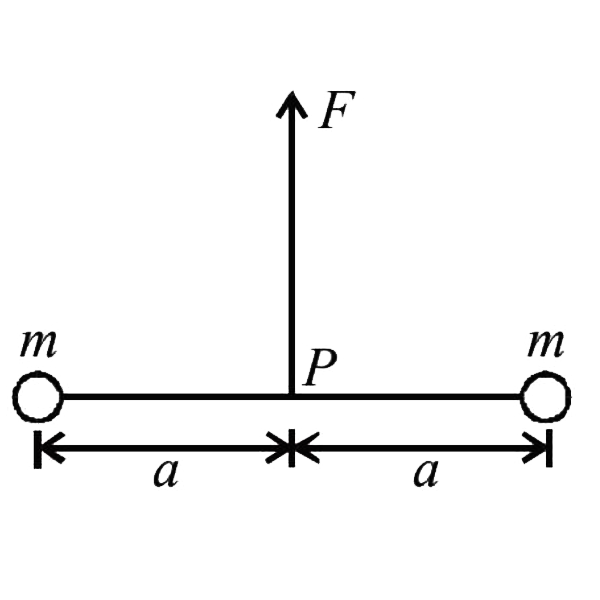
View SolutionA block of mass m is on an inclined plane of angle `theta`. The coefficient of friction between the block and the plane is `mu` and `tanthetagtmu`. The block is held stationary by applying a force P parallel to the plane. The direction of force pointing up the plane is taken to be positive. As P is varied from `P_1=mg(sintheta-mucostheta)` to `P_2=mg(sintheta+mucostheta)`, the frictional force f versus P graph will look like
View SolutionWhen body slides down from rest along smooth inclined plane making angle of `45^(@)` with the horizontal, it takes time `T` When the same body slides down from rest along a rough inclined plane making the same angle and through the same distance it is seen to take time `pT`, where p is some number greater that 1. Calculate the coefficient of friction beween the body and the rough plane.
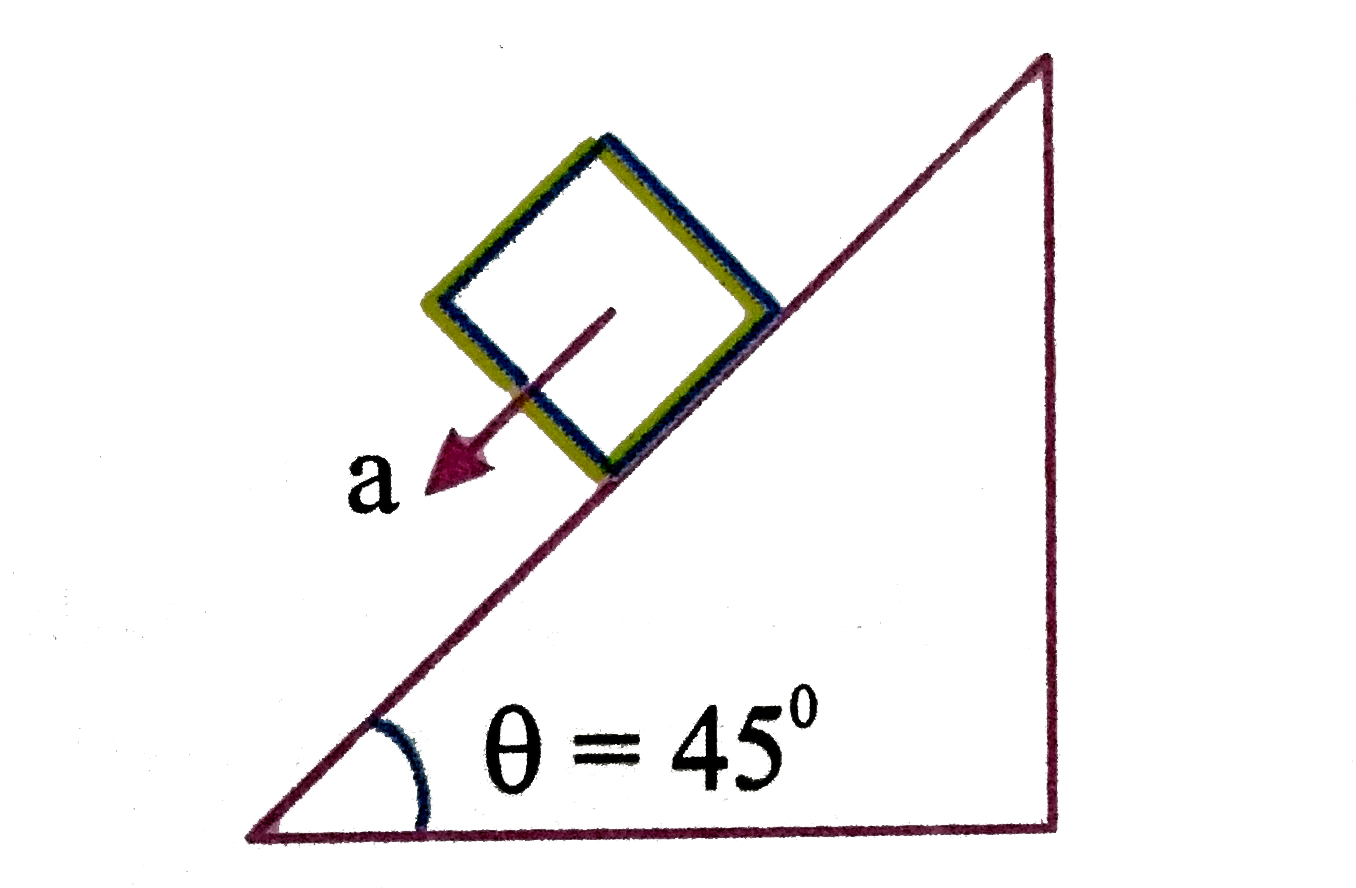 .
.
View SolutionWhat is the maximum value of the force F such that the block shown in the arrangement, does not move?
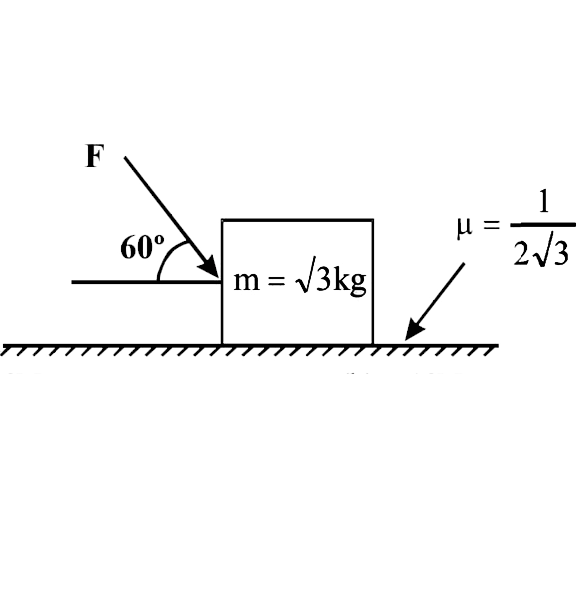
View SolutionA string of negligible mass going over a clamped pulley of mass m supports a block of mass M as shown in the figure. The force on the pulley by the clamp is given by
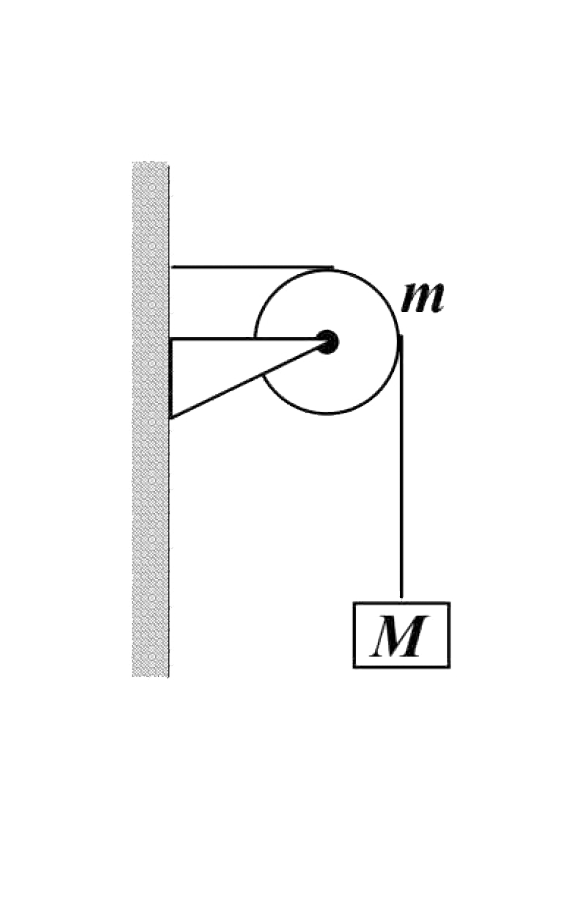
View SolutionAssuming all the surface to be frictionless. The smaller block m is moving horizontally with acceleration a and vertically downwards with acceleration a. Then magnitude of net acceleration of smaller block m with respect to ground
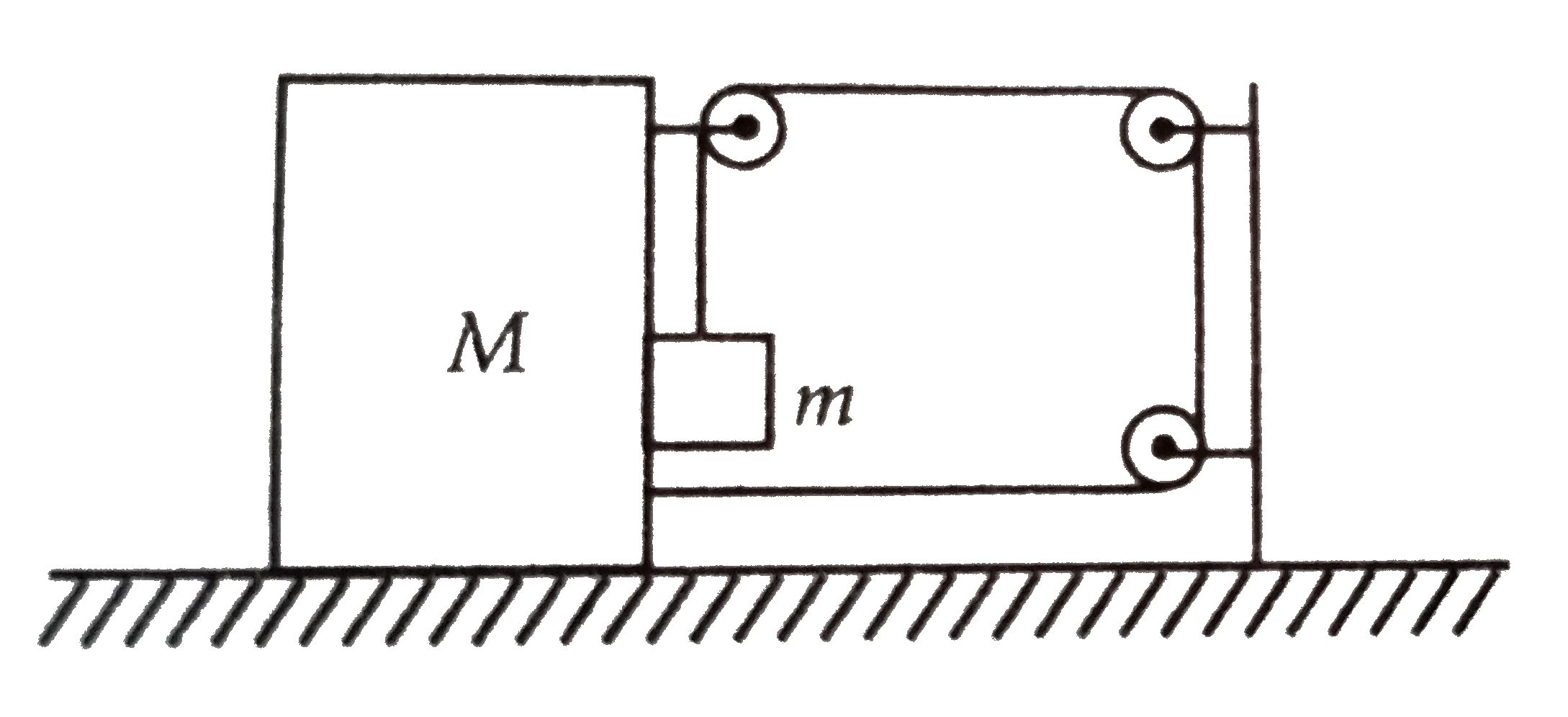
View SolutionA block of mass is placed on a surface with a vertical cross section given by `y=x^3/6`. If the coefficient of friction is 0.5, the maximum height above the ground at which the block can be placed without slipping is:
View SolutionA piece of wire is bent in the shape of a parabola `y=kx^(2)` (y-axis vertical) with a bead of mass m on it. The bead can slide on the wire without friction. It stays at the lowest point of the parabola when the wire is at rest. The wire is now accelerated parallel to the x-axis with a constant acceleration a. The distance of the new equilibrium position of the bead, where the bead can stay at rest with respect to the wire, from the y-axis is:
View Solution
Higher Order Thinking Skills questions and complete solutions for chapter LAWS OF MOTION of NCERT FINGERTIPS PHYSICS (HINGLISH) of Class 11